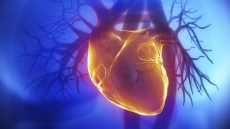While you burn calories at the gym or while running in the neighbourhood park, our brain constantly works the opposite, looking for shortest route or choose to sit rather than stand, researchers report.
A team from Simon Fraser University in Canada found that our nervous systems are remarkably adept in changing the way we move so as to expend the least amount of energy possible.
In other words, humans are wired for laziness.
“We found that people readily change the way they walk - including characteristics of their gait that have been established with millions of steps over the course of their lifetime - to save quite small amounts of energy,” explained lead researcher Max Donelan.
This is completely consistent with the sense that most of us have that we prefer to do things in the least effortful way, like when we choose the shortest walking path or choose to sit rather than stand.
“Even within a well-rehearsed movement like walking, the nervous system subconsciously monitors energy use and continuously re-optimises movement patterns in a constant quest to move as cheaply as possible,” Bonelan informed.
To reach this conclusion, the researchers asked people to walk while they wore a robotic exoskeleton.
This contraption allowed the researchers to discourage people from walking in their usual way by making it more costly to walk normally than to walk some other way.

More specifically, the researchers made it more difficult for participants to swing their legs by putting resistance on the knee during normal walking, whereas the researchers eased this resistance for other ways of walking.
This allowed the researchers to test whether people can sense and optimise the cost associated with their movements in real time.
The experiment revealed that people adapt their step frequency to converge on a new energetic optimum very quickly - within minutes.
What's more, people do this even when the energy savings is quite small: less than 5 percent.
There is a bright side to this.
“Sensing and optimising energy use that quickly and accurately is an impressive feat on the part of the nervous system. You have to be smart to be that lazy!” noted lead author Jessica Selinger.
The findings, which were made by studying the energetic costs of walking, apply to most of our movements.
The paper appeared in the Cell Press journal Current Biology.




